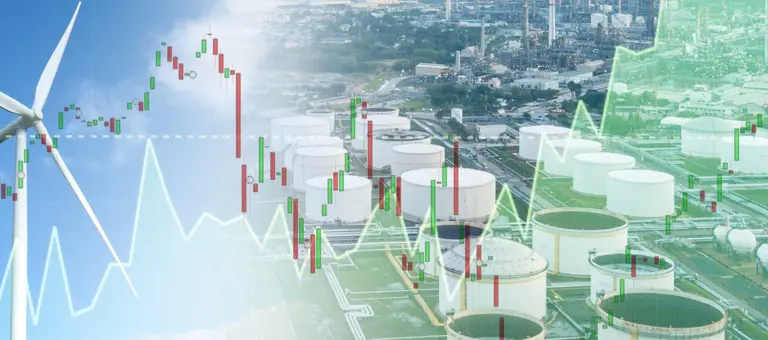
After COP26, what next for the oil and gas industry?
4 November 2021
Representatives of the 197 countries that are parties to the United Nations Framework Convention on Climate Change world will gather in Glasgow for the 26th meeting of the Conference of the Parties, or COP26 as it is better known.
They arrive at the meeting informed by the IPCC Sixth Assessment that human activity, principally the burning of fossil fuels, has led to global warming of 1.1oC, with changes to the climate seen in every region on earth. The IPCC states that limiting warming to 1.5oC is still possible, but only if we make strong, rapid, and sustained reductions to emissions now.
Agreements made in Glasgow will have a significant impact on the climate for generations to come. The emissions targets set will define the changes required to the world energy system and have direct consequences to oil and gas companies.
In this paper, we set out our insights on the challenges that climate change and the world response present to the oil and gas industry and make recommendations on how companies can analyse their physical and transition risks, mitigate their operational emissions, and create low-carbon businesses, such that they can thrive through the energy transition.
Key findings from the report include:
- Energy producers can make similar returns from renewables as they have made from oil and gas, with less risk. We believe the focus of energy companies should be on establishing a leading position in power generation as the most lucrative part of the low-carbon power value chain, as upstream is in the oil and gas value chain. We estimate the market size of this to be c.$240bn on a net profit basis in the US and Europe alone.
- Leading generation-focused global power companies are currently focusing on renewable energy and are achieving comparable financial performance to oil and gas investments, at c.10% ROACE. Therefore, we believe oil and gas companies can profitably enter this market.
- Establishing a renewables business can not only be profitable to oil and gas in the near term, but also provide a critical foundation to being a major player in the rapidly emerging green hydrogen fuel and electric vehicle markets. Given the scale of generation required and the time needed to take projects from development to operation, energy companies must start now.
For more information on Baringa's work in this area, please contact:
Andrew Mercer, Energy & Resources sector
E-mail: Andrew.Mercer@baringa.com
Related Insights

Unlocking private capital: scaling investment in the CCS sector
Unlock the next wave of CCS investment. Discover how the financial services sector can scale viable models, reduce risk and mobilise private capital for commercial CCS deployment.
Read more
Did you miss out on Italy's MACSE Auction? Here is why you shouldn’t give up
Developers now face a pivotal decision. Do you learn from these tough results, refine your bid, and compete fiercely in the next MACSE auction, or, pivot to a targeted merchant strategy, capturing value where subsidies won’t reach?
Read more
Podcast - S3-E2 - Decarbonising complex industries
Navigating the challenges of decarbonisation while maintaining energy security.
Read more
Navigating the new domestic decarbonisation landscape
Baringa’s ninth Green Buildings and Transport Forum on 3 December 2025 brought together a range of market players to discuss the future of warm homes.
Read moreIs digital and AI delivering what your business needs?
Digital and AI can solve your toughest challenges and elevate your business performance. But success isn’t always straightforward. Where can you unlock opportunity? And what does it take to set the foundation for lasting success?